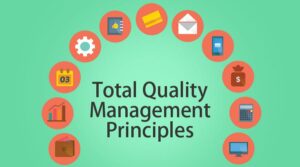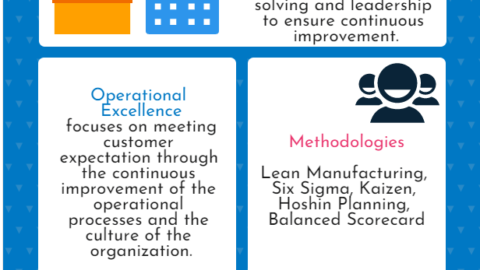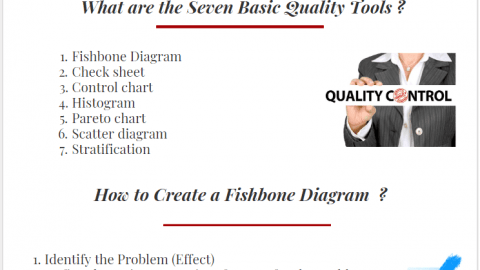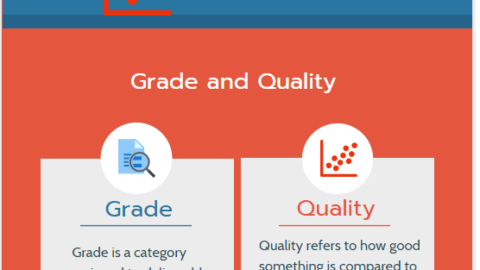How to Choose the Proper Model of Total Quality Management?
Total quality management is an operations approach that can change the course of a business for the better. There are several benefits to implementing a TQM system when put into practice, from making intelligent savings to improving workplace methodology. Let’s dive into the main principles of total quality management TQM model, as well as an example of successful TQM implementation.
Table of Contents
What is a Total Quality Management (TQM)?
Total quality management, or simply TQM, is a management technique that aims to assist businesses in creating an environment of continuous improvement, producing consistently high-quality work that satisfies customers.
A manufacturing corporation, for example, produces a significant number of products. You can save operating expenses by speeding up production, acquiring cheaper supplies, or boosting efficiency. Your business can then pass the savings to the client at a lower price.
Even when systems are meticulously constructed, there is usually space for improvement. People tend to accept the status quo, and TQM motivates them to work against this.

What are the Principles and Models of Total Quality Management (TQM)?
Total quality management builds on customer focus and continual improvement, made possible by eight principles.
Customer Focus
The first, and maybe most significant, principle contends that a business would not exist without its customers. As a result, organizations should understand their current and future customers better to meet their needs and expectations.
Involve all Amployees
As an employer, it is critical to ensure that your workforce is motivated and involved in their daily tasks and the business as a whole. To achieve this, employees must grasp the significance of their function and how it fits into the larger goals of the firm. It is also important to accept responsibility for any issues that prevent them from doing their duties to the best of their abilities.
Continuous Improvement
Any successful organization strives for continuous improvement when it comes to to total quality management. Look at the world’s top ten most successful companies. You can bet that they have entire teams dedicated to ensuring they are always on the lookout for the next big thing. Commitment to improvement also enables you to be the market leader, as you will set the agenda rather than catch up to your competition.
If the phrase “continuous improvement” is not used in a particular context, it might seem quite ambiguous. In a nutshell, it is the constant pursuit of excellence in all you do. Continuous improvement is often referred to as Kaizen in lean management.
Just after the Second World War ended, Japan is where the concept of kaizen first emerged. It acquired a ton of traction in the industry and served as one of the cornerstones in Toyota’s transformation from a modest automaker to the biggest automaker on the globe.
Continuous improvement in the framework of the Lean methodology aims to enhance every process in your business by emphasizing the enhancement of the activities that provide the greatest value for your customers while eliminating as many waste activities as is practical.

Informed Decision Making
Make sure you have all of the facts before making any business decisions, big or small. If you question why you took a particular route or need to demonstrate how that decision benefits your company, you’ll have all the facts at your disposal. This approach also depends on access to reliable and accurate data, another critical feature of modern business.
Leadership
The virtues of strong, purposeful, and unified leadership are extolled in this principle. Leaders are accountable for fostering a productive and forward-thinking business environment. They are also responsible for ensuring that future employees retain the same atmosphere.
Methodology and Technologies of Total Quality Management (TQM)
This principle contends that utilizing a clear framework to identify, understand, and manage processes and technologies can help to streamline your organization. By ensuring that team members devote the appropriate amount of attention to critical tasks, you will eliminate wasted time and increase the efficiency of your business.
Training
Training may seem obvious, but many organizations might need to pay more attention to how quality training can impact putting successful systems into place. All employees should obtain the necessary training to ensure they are up to speed on quality standards.
Company Culture
Total quality management can only work when a mindset is ingrained in a company’s culture.
Moreover, there are numerous total quality management models in which these principles are executed. It is not necessary for every organization to choose and implement the same model, but rather more important to select the suitable model for your unique organization since each model focuses on different criteria.
For example, Edward Deming developed the Deming Model, which identifies 14 aspects of quality management to improve quality and productivity. The EFQM (European Foundation for Quality Management) is a management approach that promotes discipline in corporate self-evaluation. The EFQM model is based on non-fixed fundamental notions.
How to Choose the Total Quality Management (TQM) Model for Your Business?
Every total quality management methodology has its foundations rooted in customers and their feedback. Total quality management starts with understanding your consumers, their needs, and what they expect from your business.
One of the most notable cases of a successful TQM implementation is Toyota. Toyota vehicles are known for their exceptional quality and endurance, allowing them to maintain continuously high earnings. Their success is primarily due to the company’s usage of TQM procedures, which were established in the 20th century.
Toyota implemented the Kanban System to improve the efficiency of its assembly line. The company holds only enough inventory to fill customer orders as they came in. This enabled Toyota to improve its manufacturing efficiency.
Toyota’s TQM methods are beneficial since the company’s TQM strategy adheres to TQM foundational methodology. Customer focus, informed decision-making, and the utilization of dependable tools, for example, are all critical to successful implementation.
Conclusion on Total Quality Management
Choosing the right total quality management tqm system for your business may require time and thinking. However, once you understand your customer’s wants and needs, implementing a TQM model that is successful for your business becomes clear once you keep what is most important – customers – at the center of your focus.
Writing, researching, and learning about project management and tech.










